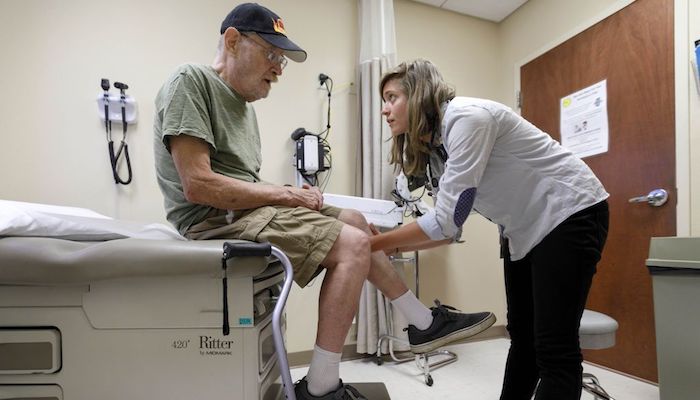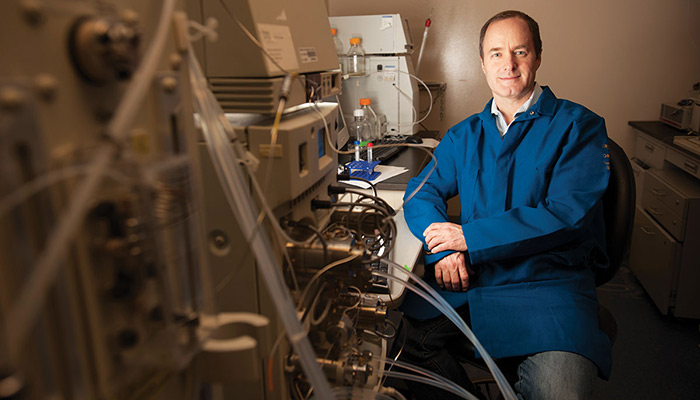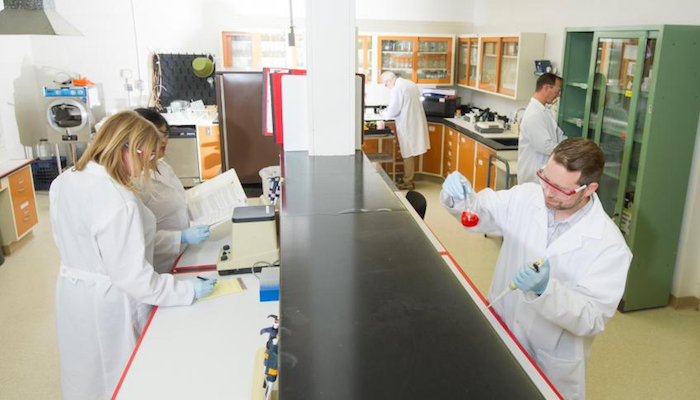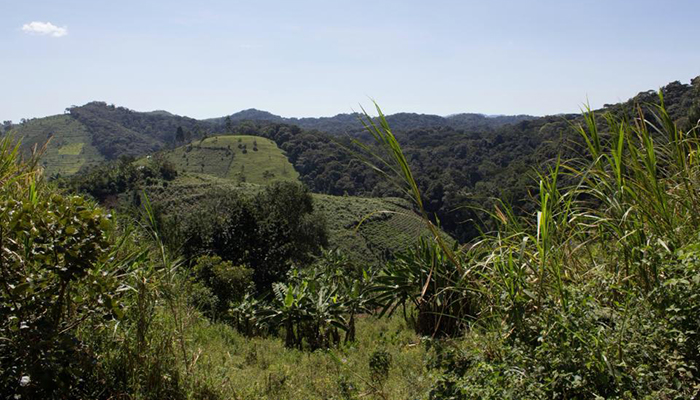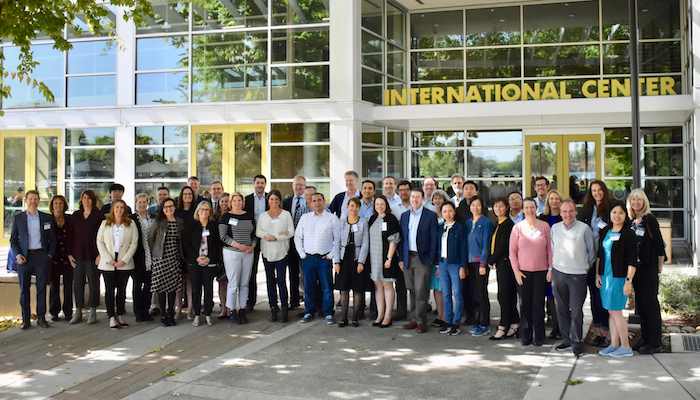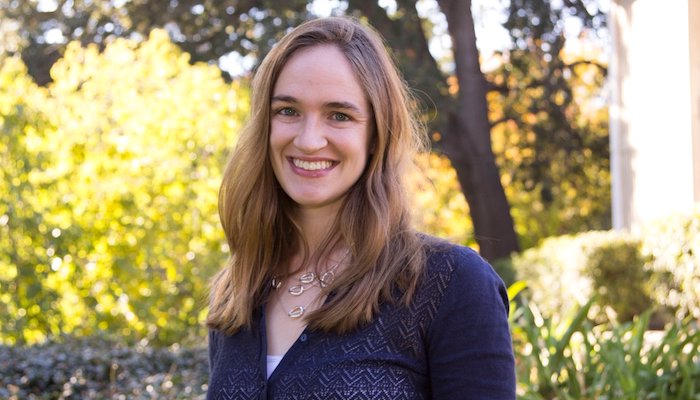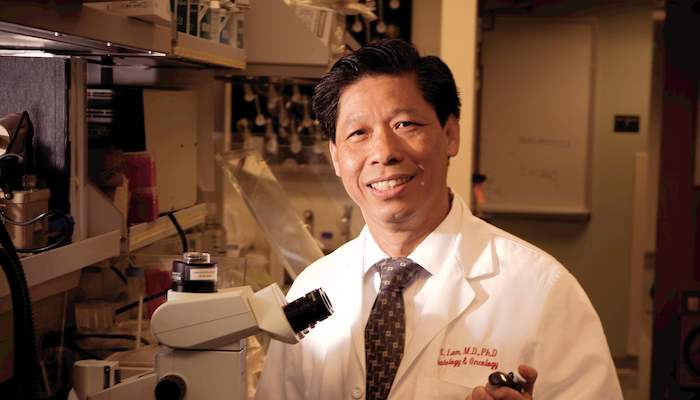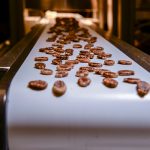Spotlight on Energy-Related Innovations from UC Davis Researchers
By Lisa Howard
UC Davis researchers had a chance to present their newest innovations and research findings during a day-long visit from David Babson, a program director for the Advanced Research Projects Agency–Energy, known as ARPA-E.
ARPA-E is a Department of Energy agency that awards funds to develop entirely new ways to generate, store, and use energy.
Babson’s visit to UC Davis on December 12 included a discussion about the mission of the agency, a tour, lunch, and lightning round presentations from 15 UC Davis researchers.
Derrick B. Coffin, executive director for Strategic Research Initiatives at UC Davis, organized the event. “There is a strong alignment between the mission needs of ARPA-E and the research happening at UC Davis. The things we are known for and excel at— energy, the environment, and agriculture — are things ARPA-E knows and values as well,” said Coffin.
Previous UC Davis research awards from ARPA-E include: a $1.5 million grant to engineer new biological pathways for bacteria to convert ethylene to a liquid fuel; a $1.8 million grant in collaboration with Arcadia Biosciences to developing plants that produce vegetable oil in their leaves and stems; and a $2.4 million grant in partnership with Carnegie Mellon to develop a 3D-printed heat exchanger for high temperature and high-pressure applications.
A total of 15 UC Davis principal investigators presented 20 lightning talks on research for biofuels, energy, climate change, microbiomes, synthetic biology and genomics.
- Shota Atsumi, associate professor, Department of Chemistry: “Electrical-biological hybrid system for the conversion of CO2 to valuable chemicals.”
- Michele Barbato, professor, Department of Civil and Environmental Engineering: “Adaptive MesoNets to improve energy infrastructure resilience,”
and “A new risk-based fire threat assessment tool.” - Maureen Kinyua, assistant professor, Department of Civil and Environmental Engineering: “Technical advancements of energy (methane) recovery.”
- Frank Osterloh, professor, Department of Chemistry: “Photocatalytic solar hydrogen generation from water.”
- Edward Spang, assistant professor, Department of Food Science and Technology: “Designing for net-zero greenhouse gas emissions for the ag-food-waste cycle.”
- Jerry Woodall,professor, Department of Electrical and Computer Engineering: “Latent heat energy storage for alternative power,” and “Split water on demand into hydrogen fuel using a gallium catalyst.”
- Karen McDonald,professor, Department of Chemical Engineering, “Plant-based production of cell wall degrading enzymes,” and “Bioprocess techno-economic modelling and environmental impact assessment.”
- Tina Jeoh,associate professor, Department of Biological and Agricultural Engineering:“Bioconversion of lignocellulosic biomass to fuels and chemicals.”
- Diane Beckles, associate professor, Department of Plant Sciences: “High resolution spatial and temporal map of the dynamic changes in starch.”
- Cristina Davis, professor and chair, Department of Mechanical and Aerospace Engineering: “Using VOCs to monitor biofuel sources for optimum growth,” and “High priority pathogen detection for agriculture using fieldable sensors.”
- Jonathan Eisen, professor, Department of Evolution and Ecology and Department of Medical Microbiology and Immunology:“Engineering microbiomes to improve agriculture, sustainability and resilience,” and “Collecting billions of samples for microbial bioprospecting and biodiversity studies.”
- Richard Michelmore, director, Genome Center and distinguished professor, Department of Molecular and Cellular Biology, Department of Medical Microbiology and Immunology, and Department of Plant Sciences: “Disruptive technologies for understanding and improving crop plants.”
- Patrick M. Shih, assistant professor, Department of Plant Biology: “In vitro and plant synthetic biology approaches to produce bio-products.”
- Cheemeng Tan, associate professor, Department of Biomedical Engineering: “Supercharged cell-free synthetic biology for biocatalysts in organic solvents.”
- Alison Van Eenennaam, extension specialist, Department of Animal Science: “Advanced biotechnologies to improve the efficiency of animal agriculture.”
Coffin hopes to grow connections between researchers and Department of Energy (DOE) and Department of Defense (DOD) agencies through opportunities like this.
“Dr. Babson’s visit gave faculty a chance to showcase ideas in alignment with the needs of the Department of Energy,” said Coffin. “We want to continue to grow our relationships and increase awareness of our capabilities with federal agencies. This helps us gain insight into needs and position for new opportunities. That enables us to help solve the world’s toughest challenges.”
Faculty who are interested in learning more about the Strategic Research Initiatives in the Office of Research are invited to contact Derrick Coffin at [email protected].
Contact
- Derrick Coffin, Executive Director, Strategic Research Initiatives, UC Davis Office of Research, [email protected]
Resources
- UC Davis Interdisciplinary Research & Strategic Initiatives


